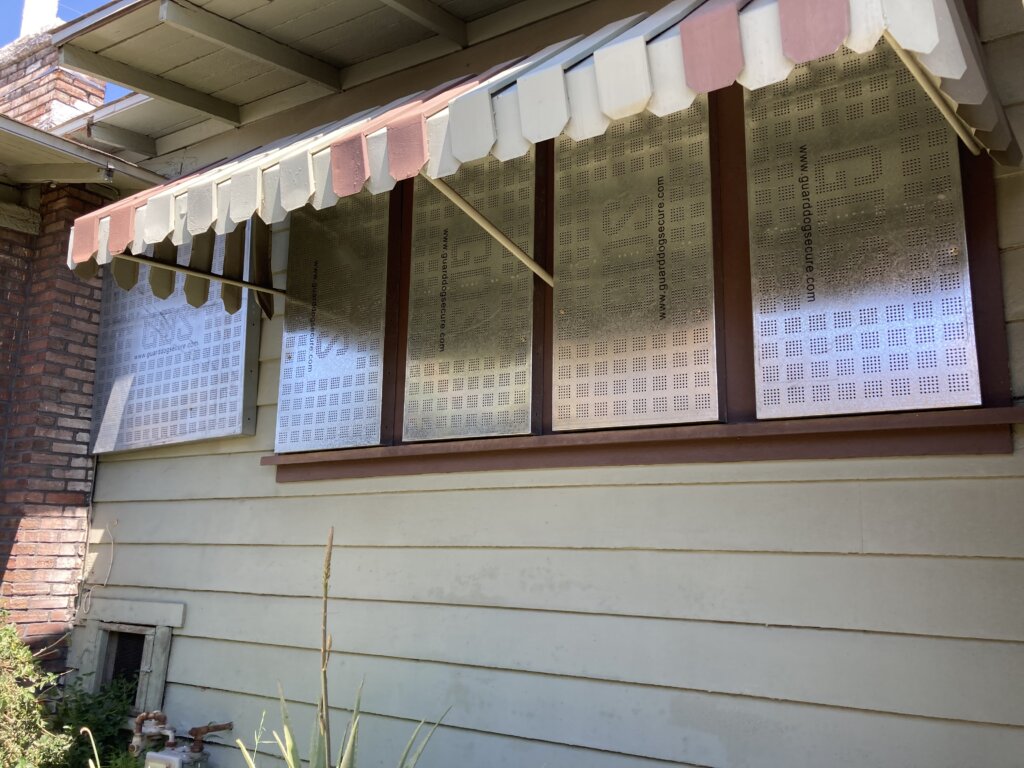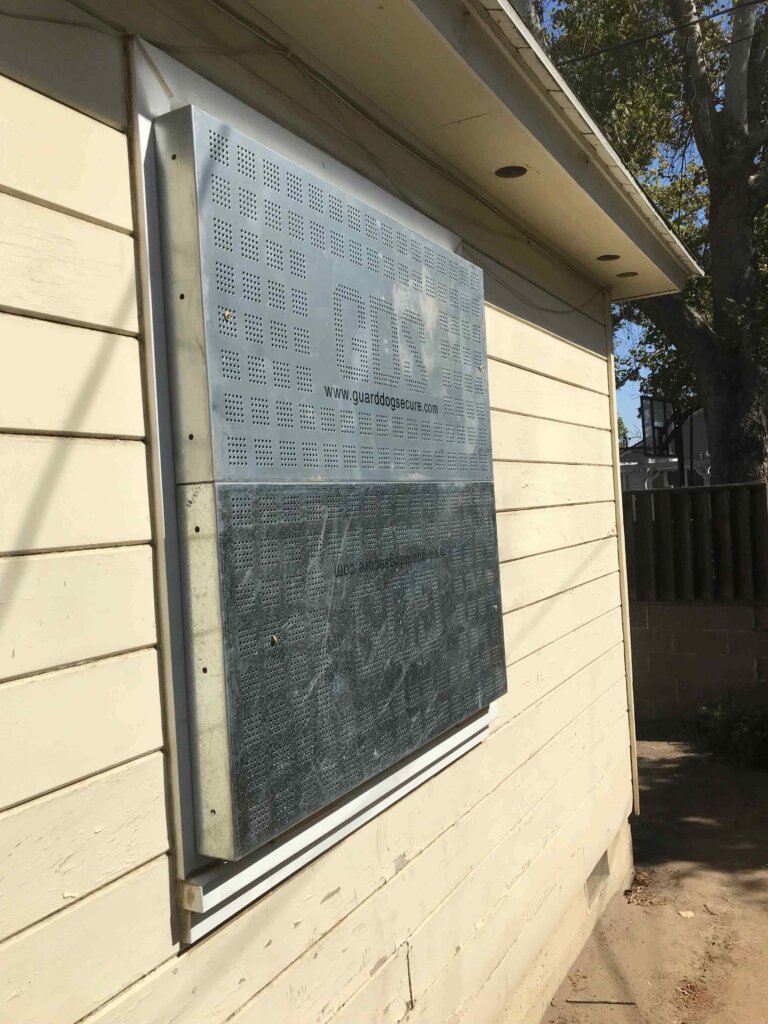Own a vacant property in Los Angeles? Read this to avoid code enforcement violations.
Vacant properties in Los Angeles pose unique challenges for owners, local communities, and city officials alike. While owning an unused property might seem like a passive investment, neglecting it can lead to costly consequences. Los Angeles has strict property codes and ordinances designed to ensure community safety and aesthetic appeal. Failing to secure a vacant property often results in code violation fines, liability risks, and diminished property values. In this blog, we will delve into why securing vacant properties is essential and how to avoid the pitfalls of non-compliance.

The Rising Issue of Vacant Properties in Los Angeles
Los Angeles, with its sprawling urban landscape, faces a growing problem of vacant homes and commercial buildings. Economic downturns, inheritance disputes, or plans for redevelopment often leave properties unoccupied for extended periods. Unfortunately, these empty buildings can quickly become magnets for:
- Vandalism: Graffiti, broken windows, and damaged exteriors are common issues.
- Illegal Occupation: Squatters or unauthorized tenants may take over, leading to legal and safety concerns.
- Crime: Vacant properties can attract illicit activities, putting neighborhoods at risk.
- Environmental Hazards: Neglected structures can become breeding grounds for pests, mold, and fire hazards.
Legal Framework: Los Angeles’ Property Codes
The City of Los Angeles has implemented strict ordinances to address vacant property issues. Two of the most relevant regulations are:
- Los Angeles Municipal Code (LAMC) Section 91.8904: This code mandates that vacant properties must be maintained in a secure and sanitary condition to prevent public nuisances.
- Vacant Building Ordinance (VBO): Enacted to ensure vacant properties do not contribute to neighborhood decline, the VBO requires owners to register unoccupied properties, maintain them, and secure them against trespassing.
Failing to comply with these regulations can result in hefty fines, starting at $250 for minor infractions and escalating into thousands of dollars for repeat violations.
Financial and Legal Repercussions of Neglect
Vacant property owners who neglect their responsibilities face numerous penalties, including:
- Code Violation Fines: Accumulated fines can reach tens of thousands of dollars, especially for prolonged non-compliance.
- Liability Lawsuits: Injuries or crimes occurring on the premises can make owners legally liable.
- Decreased Property Value: A neglected property diminishes in value, reducing its potential market appeal.
- Demolition Costs: In extreme cases, the city may order the demolition of hazardous structures at the owner’s expense.
Benefits of Securing Your Vacant Property
Securing your vacant property isn’t just about avoiding fines; it’s an investment in your property’s future and the surrounding community. Here’s why:
- Protecting Property Value
- A well-maintained property retains its market value, making it easier to sell or lease in the future.
- Proper upkeep can deter vandalism and weather-related damage, which could require costly repairs.
- Enhancing Community Safety
- Secured properties contribute to neighborhood stability by reducing crime and unauthorized activities.
- Aesthetic improvements uplift the overall appearance of the community, benefiting everyone.
- Minimizing Legal Risks
- By complying with city codes, owners eliminate the risk of fines and lawsuits.
- Secure properties reduce liability concerns, especially for accidents or illegal activities occurring on-site.
- Saving Long-Term Costs
- Investing in preventive measures like security systems, fencing, and routine inspections can save thousands in fines and repair costs.
- Registered and maintained properties avoid the expense of city-mandated demolitions or emergency repairs.

Steps to Secure Your Vacant Property
Securing a vacant property requires a proactive approach. Here are actionable steps owners can take:
- Perform Routine Inspections
- Regularly visit the property or hire a property management company to check for damages, vandalism, or trespassing.
- Install Security Measures
- Invest in high-quality locks, security cameras, and alarm systems to deter intruders.
- Consider motion-sensor lighting to increase visibility and discourage trespassers.
- Maintain the Exterior
- Keep the property’s lawn mowed, remove trash, and address graffiti immediately.
- Repair broken windows, doors, or fences to prevent entry and maintain a neat appearance.
- Comply with Local Ordinances
- Register your vacant property with the city as required by the Vacant Building Ordinance.
- Adhere to fire safety standards, including clearing flammable materials and ensuring access for emergency services.
- Engage Professional Services
- Work with property management companies, security firms, or legal advisors who specialize in vacant property compliance.
- Consider hiring landscapers or contractors for regular upkeep.
Case Studies: Real-World Consequences of Non-Compliance
To illustrate the importance of securing vacant properties, let’s look at two hypothetical scenarios:
- The Neglected Home
- A property owner in East Los Angeles left their inherited home unoccupied for over a year without registering it or performing maintenance. The house attracted squatters and became a hub for illegal activities. Neighbors filed complaints, prompting city inspections. The owner faced over $20,000 in fines and was forced to pay for an emergency clean-up and fencing.
- The Secured Property
- In contrast, a commercial property owner in Downtown Los Angeles secured their vacant building with fencing, an alarm system, and routine inspections. The property remained clean and free of trespassers, and the owner avoided fines, maintaining the building’s value until it was ready for redevelopment.
Tools and Resources for Property Owners
To simplify compliance and maintenance, property owners in Los Angeles can leverage the following resources:
- Los Angeles Department of Building and Safety (LADBS): Offers guidelines on property maintenance and code compliance.
- Vacant Property Registration Programs: Helps owners register their properties and stay informed about local regulations.
- Professional Services: Property management companies and security firms offer tailored solutions for vacant property owners.
Conclusion
Securing vacant properties is not just a legal obligation but a crucial responsibility for property owners in Los Angeles. The risks of neglect—ranging from steep fines to diminished property value—far outweigh the cost of proactive measures. By adhering to city ordinances, investing in security, and maintaining the property’s appearance, owners can safeguard their investments and contribute positively to their communities.
Taking the time to secure your vacant property today can save you from significant headaches and expenses in the future. For more information on compliance and best practices, contact the Los Angeles Department of Building and Safety or consult with a property management expert.
Free quote to board up your house. Fill in the form or give us a call!
We board up and secure residential, commercial, and industrial properties with the most secure boards on the market. We also remove the panels at no extra cost when you have finished with them.
